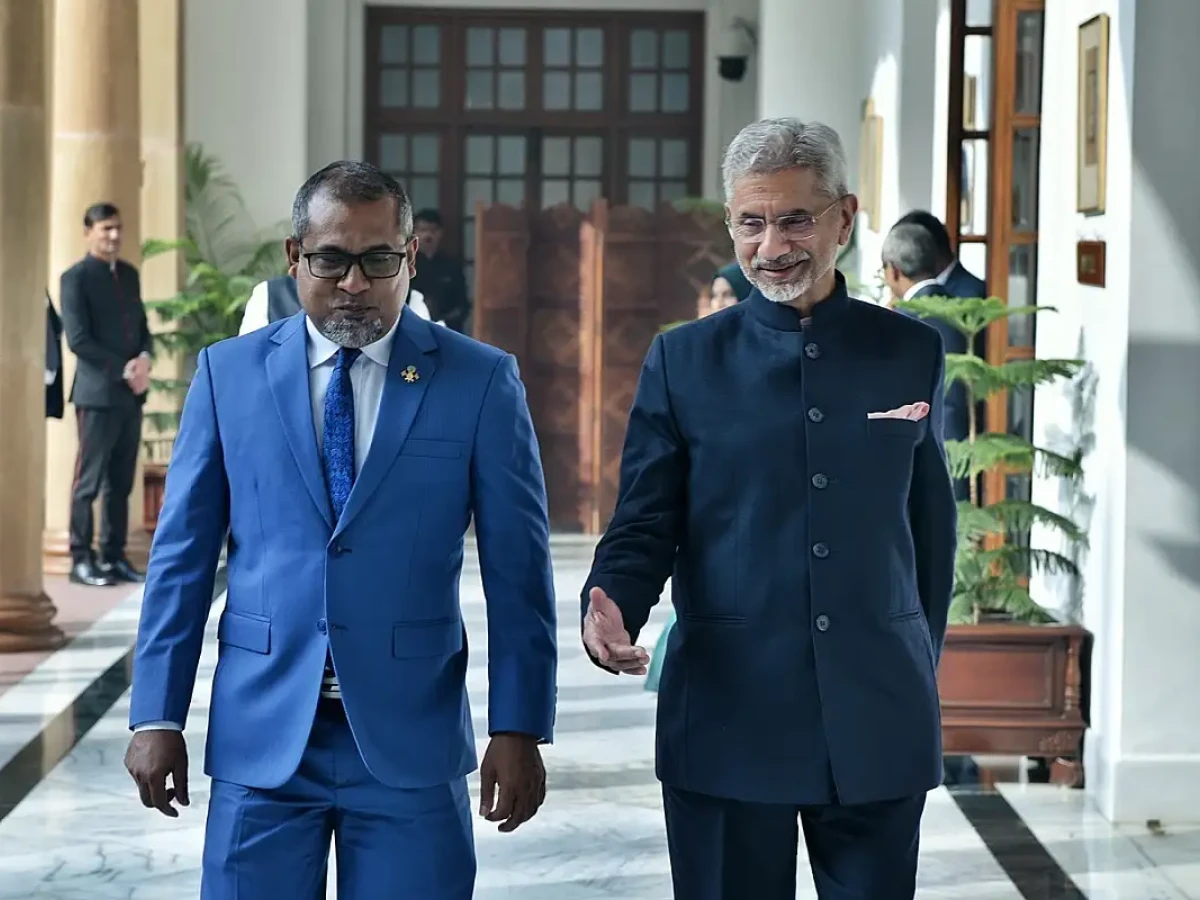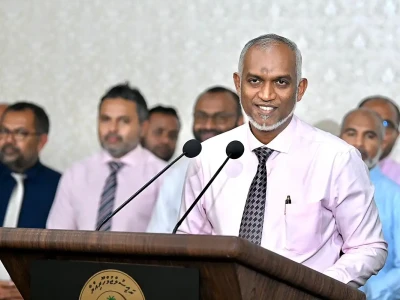
Maldives govt not involved in India Out movement, FM says
The diplomatic landscape of the Maldives has witnessed significant shifts in recent years.
Maldives' Foreign Minister Abdulla Khaleel on Saturday said that the current government is not supportive of the anti-India movements, specifically the "India Out" campaign, which has been a point of contention in the country's political landscape.
Khaleel, who is in India, told India’s WION channel that the government's primary goal is to bolster the longstanding and strategic relationship between the Maldives and India, two nations with deep-rooted economic, military, and security ties.
The "India Out" movement, which gained momentum during the tenure of former President Abdulla Yameen, has been marked by a vocal opposition to the presence of Indian military personnel in the Maldives.
Khaleel, however, distanced the current government from this sentiment, noting that Yameen currently has no affiliation with the ruling party and that the ex-President's stance against India was largely driven by his opposition politics.
"Going forward, we don't want to dwell on past disagreements," Haleel stated. "The individual who led the 'India Out' campaign before was not part of the government; he was working against it from the opposition."
The Foreign Minister stressed that under the current administration, the Maldives is committed to reinforcing its bilateral relationship with India, which has been a cornerstone of the country's foreign policy.
Khaleel expressed confidence that no forces—whether from the opposition or internal factions—would be able to disrupt the growing bond between the two nations.
"I believe there is no room for discussions that would weaken the relationship now that the ties between our two countries are stronger than ever," he added.
Khaleel also took issue with recent international media reports that have suggested India is attempting to interfere in the Maldives' internal politics. Referring to an article published in the Washington Post, which claimed India was negotiating efforts to overthrow President Mohamed Muizzu, Khaleel categorically denied the accusations. "The article contained false information, and I do not know why such claims were made," he said, urging caution when interpreting media reports.
Khaleel acknowledged that certain segments of the population—especially within the opposition—may still harbor negative views toward India. However, he was quick to point out that these sentiments are not reflective of the government's official policy.
"There may be individuals in the opposition or even within the government who oppose some of our policies," Khaleel explained, "but this is their personal opinion, not the government's thinking."
Despite these political undercurrents, Khaleel underscored that the government holds the relationship with India in high regard, and this mutual respect is reciprocated by India itself.
"We value this relationship, and I believe India does as well," he added.
The diplomatic landscape of the Maldives has witnessed significant shifts in recent years. Last January, relations between the two countries hit a rough patch following derogatory remarks made by several Maldivian deputy ministers about Indian Prime Minister Narendra Modi. However, President Muizzu's recent visit to India, which included his participation in Prime Minister Modi's swearing-in ceremony, signaled a thaw in ties. During the visit, India also offered the Maldives a $400 million currency swap, a gesture hailed by Haleel as crucial in stabilizing the Maldivian economy.
"India's assistance has been instrumental in helping us manage our financial challenges," Khaleel noted, highlighting that such economic support is essential for the island nation's stability.
During his tenure, President Muizzu has occasionally voiced concerns over foreign influence, particularly regarding India's regional role. After returning from a visit to China in December, he made strong statements emphasizing that the Maldives is not a "backyard" for any nation. This remark came amid increasing concerns about the Maldives' growing ties with China, which some see as a counterbalance to India's influence.
Muizzu also addressed the issue of medical tourism, which has traditionally seen many Maldivians traveling to India for treatment. While affirming the importance of maintaining healthcare ties with India, he announced that the government would be expanding medical services to include Thailand and the UAE under the country's Aasandha scheme, which provides affordable healthcare to citizens.




